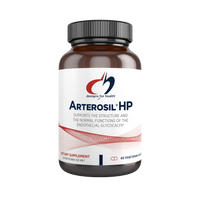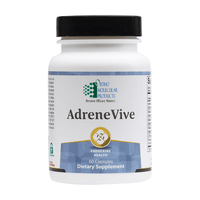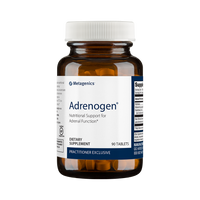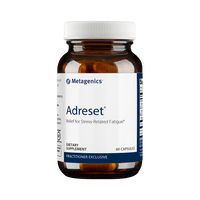Constipation is an issue that's rarely talked about, but one that is important. Just like a traffic jam, constipation slows down important movement and is both annoying and potentially harmful.
Many people may not feel comfortable discussing it, but constipation can be a condition that predisposes you to serious problems such as hemorrhoids, ulcers, hernias, obstruction of the colon, and urinary tract issues according to Clinical Gastroenterology and Hepatology.
Some studies, such as one published in European Journal of Cancer, even suggest that constipation can put you at a higher risk for colorectal cancer. Although there are varying opinions on this topic, this particular study even claims that use of certain laxatives may further increase this risk.
Research from the Journal of Clinical Gastroenterology finds another reason to be wary of some laxatives. The study determined that non-fiber laxatives, when taken long-term, can actually make harmful changes to the colon. According to the study, popular laxatives containing bisacodyl, phenolpthalein, senna, or casanthranol can result in the loss of the haustral folds that give the colon its segmented appearance and help push food through the digestive process.
So how should people address constipation in a way that is effective and does not lead to dangerous side effects? Instead of using products that have the potential to fix one problem while causing another, learn which natural products are the most effective for addressing this very bothersome (and potentially harmful) problem.
The Cause of Constipation
The most common cause of constipation is a lack of fiber in one's diet. Fiber, which is the indigestible, plant-derived portion of food that absorbs water as it moves through the digestive system, adds bulk to the food you eat and increases the rate of waste passage through the body.
Diets too low in fiber tend to be closely linked to constipation. There are many possible causes of constipation:
- Sudden changes in diet can lead to constipation. If you normally eat a set of foods and are introduced to new kinds when you travel (or simply switch to a new diet), this can cause a disruption in the body and make it harder to pass waste through the digestive system. For example, suddenly switching to a high-protein diet may include less fiber-containing fruits, vegetables, and whole grains than the body is used to and can cause constipation.
- Irritable Bowel Syndrome (IBS), is a condition that causes abdominal pain, but the pain can be alternately caused by both diarrhea and constipation. Fluctuating between these two states is unusual for a standard case of constipation, and some doctors have started referring to belly pain or discomfort associated with constipation as IBS-C.
- Stress has also been linked to constipation issues. Not everybody has such a response to stress, but since stress can interfere with the relaxation of the body (even bowels), some find that acute stress leads to feeling backed up. Poor food choices when stressed can also worsen the symptoms.
- An imbalance of the "good" bacteria that aid in digestion. A healthy and diverse balance of bacteria (called microflora) within your intestinal tract is essential for avoiding constipation.
- Other common causes include a lack of exercise, hypothyroidism, the usage of certain medications such as iron pills and antidepressants, Parkinson's disease and Multiple Sclerosis. Various food allergies can also contribute to constipation.
Lifestyle Remedies To Combat Constipation
One of the best natural solutions to get the digestive process back on track naturally is to do something you should be doing anyway - exercise.
Just about any form of mildly challenging exercise will work, but walking is an appealing option because it is effective and an accessible form of exercise for most people regardless of age or fitness level. A study published in the Scandinavian Journal of Gastroenterology noted that 30 minutes of brisk walking per day dramatically reduced the severity of constipation.
If you suspect stress is a major cause of your constipation, consider taking up a soothing activity like meditation or gentle yoga. Rest and relaxation can not only help better regulate bowel movements, but can bring far-reaching benefits to other areas of your life.
Also consider your diet. If you aren't currently eating an abundance of fresh fruits and vegetables, that's definitely the place to start. Foods like beans, lentils, baked potatoes and whole grains are fiber powerhouses that also offer a wide array of vitamins, minerals, and antioxidants. But remember to add these slowly to your diet. If you add too much at once, you may find yourself faced with the opposite problem of diarrhea.
Consult our previous article about fiber and its role in protecting the heart to learn more about how much fiber you should be getting daily. It's always ideal to get the nutrients we need from whole food nutrition, but those who are on a weight-loss diet plan may find it easier (from a caloric standpoint) to simply add a natural and effective fiber supplement.
Finally, focus on increasing your intake of water. Even slight levels of dehydration can be linked to constipation, according to a study published in the European Journal of Clinical Nutrition. Drink around half your body weight in ounces per day of clear fluids. That means that if you weigh 150 pounds, you'll want to aim for around 75 ounces of water, or about 9 to 10 cups.
Natural Solutions for Constipation
Lifestyle changes are important, but the results you will see from such adjustments can be significantly boosted through the use of the right supplements. The best place to start is psyllium husk fiber, which comes from the plant plantago ovata. A study published in the Journal of The American Dietetic Association noted that when constipated subjects received a treatment comprised of psyllium husk fiber, just less than 10% of the participants rated their difficulty of their bowel movements as being difficult. Among those who did not use the supplement, the rating was up to 50%.
These findings have been confirmed by other studies, such as one from Nursing Research, which confirms that daily supplementation with fiber containing psyllium is associated with decreased constipation. Fiber Formula, by Integrative Therapeutics, is highly effective and simple in the best way possible. If you look at many fiber supplements on the market, such as Metamucil's® well-known Orange Coarse powder, they come packed with added sugar and artificial ingredients. For those who do not enjoy the taste or texture of mixing a raw fiber supplement, Fiber Formula comes in an easy to take capsule. 5 capsules spread throughout the day provide a total of 3 grams of dietary fiber without any sugar.
Many people think of aloe vera as a gel that you apply to your skin after a sunburn, but consuming aloe vera is a great natural way to boost the effectiveness of psyllium husk fiber because it can add fluid to waste that makes it easier to pass. A study published in the journal Digestion noted that when subjects were given a combination of natural solutions that included both aloe vera and psyllium, the subjects reported reduced constipation and their reliance on using conventional laxatives was reduced when compared to the placebo group. Cape Aloe by Douglas Labs is an excellent product to consider pairing with a psyllium fiber supplement such as Herbal Bulk.
Most people with constipation will also benefit from adding a high-quality probiotic to address any bacterial imbalances that may be causing or exacerbating the constipation. Research published in the Annals of Nutrition & Metabolism noted that when probiotics were given to older subjects suffering from poor movement of waste through the gastrointestinal tract, they noticed a 24% increase in frequency of bowel movements.
Consider Lactobacillus Acidophilus or Probiotic 50B by Pure Encapsulations to ensure the proper balance of bacteria within the body. Lactobacillus Acidophilus provides a strong dose of the L. acidophilus strain that has been found by various studies, such as one published in the Journal of Clinical Gastroenterology, to be the most effective single strain for fighting constipation. Probiotic 50B has that strain, and many others, to provide a robust defense against constipation.
I hope this information spurs you to be proactive when you find yourself backed up and to address the problem immediately. Constipation is not a popular topic of conversation, but it can cause significant problems if left untreated. If you have any questions regarding the concepts discussed here or anything else, you can reach our customer service team at 888-460-3091 or e-mail them at customerservice@oakwaynaturals.com.
Until next time, stay healthy!
Yours in health,
Dr. Gregg Gittins


















 a
a